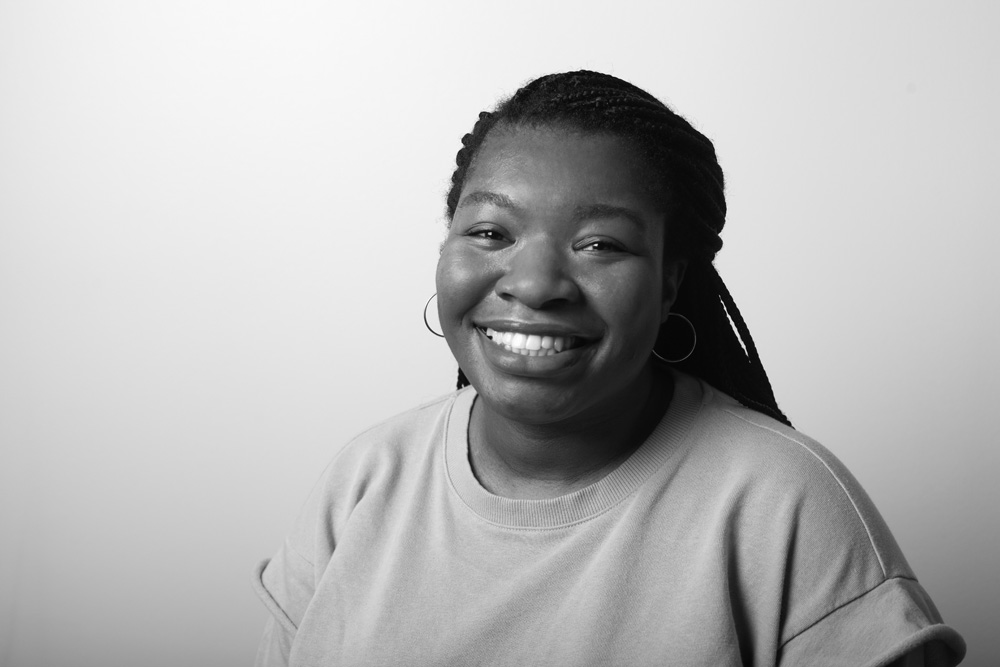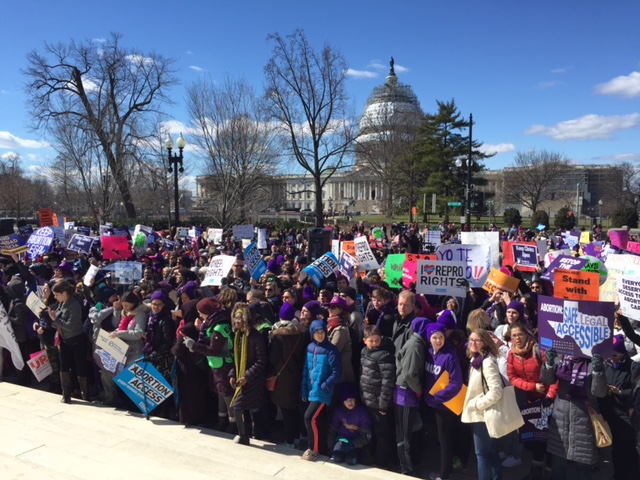Abortion rights, women of color, and LGBTQIA+ people are under attack. Pledge to join us in fighting for gender justice.
The IOC Violated Olympians’ Reproductive Rights…and Didn’t Want You to Know About It
The Olympics have looked quite different this year from empty stands, to masked medal ceremonies, to athletes giving us the inside scoop on TikTok. What else is new at the Olympics? This year, more women than men are representing the United States—and we’re not the only country whose women elite athletes continue soaring to new heights.
That’s something to celebrate, but it’s also revealed how the International Olympic Committee treats women athletes, particularly Black women. The patriarchy was in full form as we virtually rang in #Tokyo2020 by watching white officials, institutions, and brands interfere with the reproductive rights of Black women athletes. Standing on the shoulders of literal 15th century colonizers, the machine behind the Olympics aired athletes’ health records, policed their bodies, and used Euro-centric standards to define what womanhood should be. The system that caused centuries of violations to Black women’s bodily autonomy is proven, yet again, to be far from over.
Top Athletes Are Missing Out Because of Misogyny and Bad Science
While the policing of athlete’s bodies isn’t new, this Olympics has brought to light several disturbing instances of how the IOC and others interfere in the bodily autonomy and privacy of women athletes.
Take 100-meter hurdle Olympic champion Brianna McNeal. She’s currently sitting on a five-year ban for missing a drug test because she mixed up the test dates and happened to be recovering from an abortion, during which she didn’t hear the testers knock. During her appeal, she provided a doctor’s note, saying she wasn’t feeling well without disclosing her abortion. Ok, cool, the doctor’s note should be good to go, right? But the World Athletics forced her and her doctor to disclose WHY she wasn’t feeling well, which frankly was none of their business. A bunch of white men in Switzerland couldn’t fathom why McNeal didn’t want to disclose her medical information, so now she’s being accused of doping despite never testing positive for performance enhancing drugs.
Not only is she being forced to disclose personal medical information to strangers and miss the Olympics, she also has to give up times, medals, and prize money for the period the drug test covers.
Caster Semenya of South Africa—the fastest woman in the world in the 800 meters—has also been noticeably absent from the track in Tokyo this year due to new World Athletics regulations on testosterone levels in track events, which vary from event to event—yeah, we don’t get it either.
Semenya is a woman, but when she first blew the competition out of the water at 18, no one could believe that a woman could be this good at running *eye roll*. She was forced to undergo a sex verification test and found out that she had a naturally high level of testosterone. World Athletics ruled that she couldn’t compete in Tokyo this year unless she took birth control to lower her testosterone levels. Semenya’s reaction?
“It’s taking the soul out of my body…They want me to take my own system down. I’m not sick. I don’t need drugs. I will never do that.”
She’s right, the governing body over elite track and field is not only trying to intimately control her body but is engaging in reproductive coercion. Reproductive coercion means that an outside body is, under threat, attempting to make reproductive health decisions for you. This is part of a long history of reproductive coercion on Black women, from forced sterilization to coercive birth control procedures—including Westerners trying to forcefully impose birth control on Black and brown women in the Global South. It is not for the white, European men of World Athletics and the ECHR to decide whether Semenya is “woman enough” to compete, and only Semenya should be making decisions about her birth control, not them. This is racism, sexism, and transphobia, all wrapped up in a little bow.
Semenya wasn’t the only athlete affected. Christine Mboma of Namibia and Beatrice Masilingi ran the 200 meters, but we won’t get to see them in another race because apparently, they have too much testosterone to be considered women for the 400 meters—and also told they needed to get on birth control to run the 400 meters. Let me tell you, it’s not a coincidence this is happening to athletes who are eating their (slower, white, European) counterparts for lunch on the track.
Just Let Black Women Be Great, Okay?
Black women athletes brought in tons of hype for this year’s Olympics, but the reality of the white cisheteropatriarchal institutions that run it has definitely set in. While the governing bodies of elite sports expect Black women to turn out viewership and funnel money into sports, they remain the descendants of the same colonizers who saw Black women’s bodies as inherently “other.” They took that mentality of fear and control and ran with it for generations, and the harm caused to Black women and communities is clearly far from being ancient history. The attempt to control Black women and interfere with the autonomy everyone is entitled to is plain old racism, sexism, and transphobia. We will continue to fight for a world where everyone who loves sports can compete to represent their country—with their bodies, minds, and autonomy prioritized.





